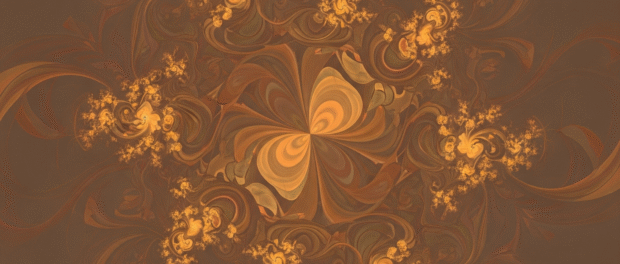Psychedelic-Assisted Therapy; The Resurgence and 7 Ways to Incorporate It

In recent years, psychedelic-assisted therapy has emerged from the shadows of stigma and prohibition into the spotlight of modern mental health treatment. What was once dismissed as countercultural or fringe is now gaining serious recognition as a powerful tool to heal trauma, depression, anxiety, PTSD, and addiction. This resurgence of plant medicine, rooted in ancient indigenous practices but supported by cutting-edge science, heralds a new era of holistic mental health care.
Mental health is a sacred frontier where truth meets healing, and freedom is found in the rawest, most vulnerable parts of ourselves. For too long, Western medicine has treated mental illness with a cookie-cutter approach; masking symptoms with pills that dull rather than heal. But now, psychedelic-assisted therapy is shifting this landscape in a way that aligns with my deepest belief: real healing must honor the whole person; body, mind, spirit, and yes, our unspoken desires for freedom and truth.
A Brief History: From Sacred Plants to Scientific Revival
For thousands of years, indigenous cultures worldwide have used plant medicines such as psilocybin mushrooms, ayahuasca, peyote, and iboga in spiritual and healing ceremonies. These substances were revered as sacred gifts, facilitating profound personal insight, emotional release, and connection with nature and the divine.
However, in the mid-20th century, psychedelics were criminalized in the West amid political and social upheaval. Research abruptly halted, and these powerful substances were relegated to the underground. Despite this, interest never fully waned.
Fast forward to the 21st century, scientific and medical communities have reignited research into psychedelics, propelled by promising clinical trials and advances in neuroscience. This renaissance is supported by a cultural shift toward destigmatizing mental health and embracing integrative, patient-centered approaches.
Ancient Wisdom Meets Modern Healing
As someone devoted to holistic health and unfiltered authenticity, I see psychedelic medicine as a reclamation of sacred knowledge. Indigenous cultures have long revered plants like psilocybin mushrooms, ayahuasca, and peyote; not as recreational escapes but as divine allies for transformation, ceremony, and profound insight. These medicines are not just chemicals; they are living teachers that can strip away the armor of trauma and open doors to personal sovereignty.
This revival isn’t a trend or some New Age fad. It is a return to honoring nature’s profound gifts; a form of healing that resonates with my own journey as a sexologist and holistic practitioner who knows that true wellness demands radical honesty and deep connection.
What is Psychedelic-Assisted Therapy?
Psychedelic-assisted therapy combines the controlled administration of a psychedelic substance with professional therapeutic support. Unlike recreational use, this approach is highly structured, conducted in safe, supportive environments, and tailored to each individual’s needs.
The therapy typically involves:
- Preparation sessions to establish trust, set intentions, and educate the patient.
- Guided psychedelic sessions where patients take substances like psilocybin or MDMA under supervision, often accompanied by therapeutic support and sometimes music.
- Integration sessions after the experience to process insights and apply them to daily life.
This model maximizes the healing potential of the psychedelic experience while minimizing risks.
Why Psychedelic Therapy Is Gaining Traction
1. Breakthrough Results in Resistant Conditions
Traditional psychiatric medications don’t work for everyone. Many people with treatment-resistant depression, PTSD, and addiction find relief elusive. Psychedelic therapy offers a promising alternative with rapid, often profound, effects; sometimes after just one or two sessions.
2. Deep Emotional Healing and Neuroplasticity
Psychedelics appear to promote neuroplasticity, the brain’s ability to reorganize and form new connections. Combined with therapy, they can help patients confront and reframe painful memories, break negative thought patterns, and foster emotional openness.
3. Holistic Approach
Rather than simply masking symptoms, psychedelic-assisted therapy encourages a holistic healing process—addressing mind, body, and spirit. It aligns with growing interest in integrative health practices and personalized care.
Why Psychedelic Therapy Resonates with the Path of Freedom
I believe freedom is the ultimate human goal. Psychedelic-assisted therapy embodies that freedom; the freedom to face our darkest fears, rewrite the stories that bind us, and step into our full power. It dismantles the false walls our minds build around pain, shame, and isolation.
In my work, I witness how trauma, sexual, emotional, and spiritual, can imprison people. Psychedelic therapy, when combined with skilled therapeutic guidance, offers a powerful tool to unlock those chains. It’s a kind of radical permission to feel, to release, and to transform.
Common Psychedelic Medicines Used in Therapy
- Psilocybin (magic mushrooms): Currently in advanced clinical trials for depression and end-of-life anxiety.
- MDMA: Known as “ecstasy,” it’s in late-stage trials for PTSD treatment.
- Ayahuasca: A South American brew used traditionally for spiritual healing, increasingly studied for depression and addiction.
- LSD: Being researched for anxiety and cluster headaches.
- Ibogaine: Used in addiction treatment, especially for opioid withdrawal.
The Science Behind the Experience
Brain imaging studies show that psychedelics reduce activity in the default mode network (DMN), the brain region associated with the ego and self-referential thought. This “ego dissolution” can allow patients to experience new perspectives, decreased rumination, and greater emotional connection.
Meanwhile, increased connectivity across brain regions supports the formation of new mental pathways; helping “unstick” people from entrenched patterns of thought and behavior.
Science Meets Spirit
Modern neuroscience confirms what shamans and mystics have always known: these medicines change brain function in ways that open us to healing. By quieting the default mode network, they create space for new perspectives and emotional breakthroughs.
But beyond science, psychedelic therapy is a spiritual practice. It asks us to surrender control, to embrace mystery, and to trust the process of unfolding. This mirrors the vulnerability and surrender I advocate for in sexual healing and personal growth; where true power arises not from domination, but from authentic presence and connection.
Safety and Ethical Considerations
While the potential is exciting, psychedelic therapy is not without risks. It must be delivered with professional care, screening for contraindications such as certain psychiatric disorders or medical conditions.
Ethical practices also include respecting indigenous knowledge and rights, avoiding cultural appropriation, and ensuring equitable access to these emerging treatments.
I cannot stress enough the importance of respect and integrity as these therapies move toward wider acceptance. We must honor the indigenous roots of these medicines, avoid cultural exploitation, and ensure access is equitable.
For those of us who live unapologetically; whether in our sexuality, our spiritual devotion, or our lifestyle choices, psychedelic therapy is another form of reclaiming agency over our bodies and minds. It is about owning our truth and boldly stepping into healing on our terms.
The Future of Psychedelic-Assisted Therapy
With the FDA granting breakthrough therapy status to several psychedelics, we can expect wider legalization, clinical availability, and insurance coverage in the coming years. Training more therapists and developing ethical frameworks will be essential.
Beyond clinical use, plant medicines may also continue to inspire new ways of understanding consciousness, healing, and human connection.
Embracing a New Paradigm of Healing
The resurgence of psychedelic-assisted therapy reflects a powerful shift in mental health care; from symptom management to profound healing, from isolation to connection, from fear to curiosity.
For those struggling with mental health challenges, these ancient medicines, coupled with modern therapeutic techniques, offer hope for transformation and freedom. As research advances and societal understanding grows, we step closer to reclaiming these sacred tools as vital allies on the journey toward wholeness.
A Call to Embrace Radical Healing
If you are someone who has felt trapped by mental health struggles, if traditional medicine has failed you, know that a powerful shift is underway. Psychedelic-assisted therapy invites us all to reclaim joy, clarity, and freedom.
As a nomad, a holistic healer, and an devotee to truth in all its forms, I celebrate this resurgence. Because healing is not just about surviving; it’s about thriving with fierce honesty, deep love, and unshakable freedom.

7 Ways to Incorporate Psychedelic Wisdom into Your Life
1. Cultivate Sacred Space for Reflection
Create a dedicated environment, whether a corner in your home, a journal, or a quiet outdoor spot, where you can retreat regularly. Like psychedelic journeys, deep healing requires a safe, sacred container for inner exploration and emotional release.
2. Practice Radical Honesty with Yourself
Psychedelics reveal truth unfiltered. Embrace that honesty by committing to self-reflection without judgment. Name your fears, desires, and shadows. This is where real freedom begins; owning your full story without shame.
3. Engage in Breathwork or Meditation
These practices echo the spiritual surrender of psychedelic therapy by grounding you in the present moment. Breathwork can unlock emotional blockages and expand consciousness, allowing you to access deeper layers of healing anytime you choose.
4. Honor Your Body as a Temple
As a naturist and holistic practitioner, I know the body holds wisdom and trauma. Use movement, touch, and self-care rituals to reconnect with your body’s intelligence and release stored tension or pain.
5. Seek Connection with Nature
Plant medicines come from the earth, reminding us of our rootedness and interconnection. Spend time barefoot outdoors, meditate among trees, or simply soak in natural beauty. This nourishes your spirit and aligns you with healing rhythms.
6. Journal Your Insights and Intentions
After any deep inner work, whether from therapy, meditation, or life experience, capture what you learn. Writing helps integrate insights, clarify intentions, and track your healing journey with grace and purpose.
7. Surround Yourself with Supportive, Truth-Honoring Community
Healing thrives in connection. Find or build a tribe of honest, open-minded people who honor your truth and encourage your freedom. Whether through therapy groups, online circles, or trusted friends, community amplifies your transformation.
These steps reflect the spirit of psychedelic-assisted therapy beyond the clinical setting, bringing the medicine of radical presence, honesty, and connection into every moment of your life. As you integrate these practices, you nurture your mind, body, and soul in alignment with your deepest desire for freedom and wholeness.

Afterthought: Healing as a Radical Act of Love and Truth
As a Homeopathic Psychologist, I have spent decades witnessing the intricate dance between mind, body, and spirit, and how true healing demands more than just treating symptoms. It requires courage, vulnerability, and a willingness to confront the often uncomfortable truths within ourselves. Psychedelic-assisted therapy embodies this radical honesty, offering not a quick fix, but a profound invitation to step into our full humanity.
Healing is, at its core, an act of love; a fierce, unyielding love for ourselves that refuses to settle for anything less than freedom. The plant medicines and therapeutic frameworks emerging today aren’t just tools; they are sacred catalysts that awaken the innate wisdom each of us carries.
In my practice and my own life, I see that embracing this healing means choosing to be fully present with our pain and our pleasure, our darkness and our light. It means breaking down the walls we’ve built and daring to live authentically, unapologetically, and wholly free.
This journey is not always easy. It asks us to surrender control, to trust the unknown, and to honor our bodies and souls as the miraculous vessels they are. But it also holds the promise of transformation; a rebirth into a life where truth is our foundation, and freedom is our birthright.
To anyone standing at the threshold of this work, know that you are not alone. You carry within you a deep reservoir of strength and healing potential. The path may be winding, but every step toward your authentic self is a sacred act of rebellion against a world that too often asks us to conform and hide.
From my heart to yours, I encourage you to embrace this healing journey with openness, courage, and above all, compassion for yourself. Because you deserve nothing less than the full freedom of your truth.
Susie Spades, PhD




Leave a comment